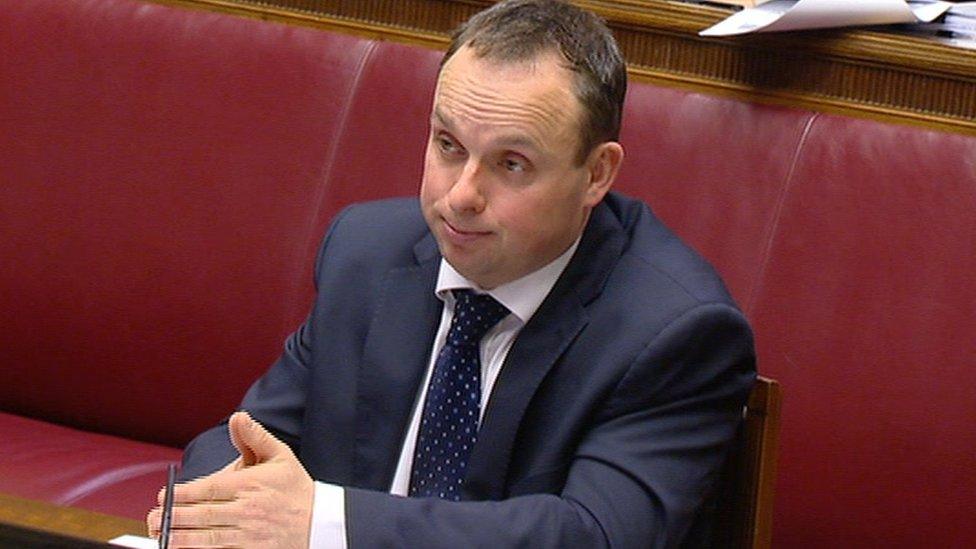DUP 'cost controls' email revealed at green scheme inquiry
- Published
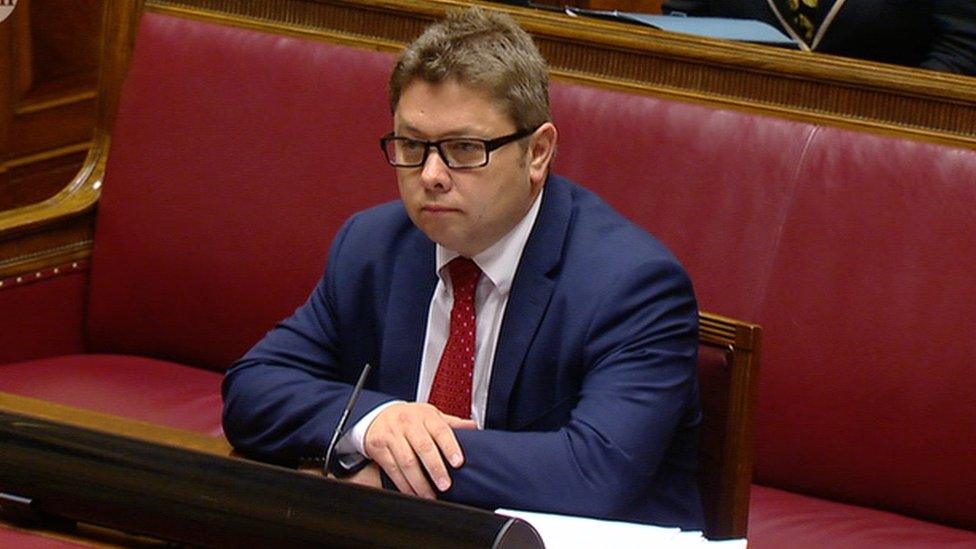
Timothy Johnston is a former special adviser to three first ministers: Ian Paisley, Peter Robinson and Arlene Foster
An email supplied by an ex-DUP adviser to the inquiry into NI's flawed green energy scheme appears to show someone in the party did not want cost controls introduced.
It came to light on day 99 of the Renewable Heat Incentive (RHI) inquiry.
The DUP's chief executive Timothy Johnston had returned to give evidence.
The RHI scheme was set up in 2012 to encourage uptake of eco-friendly heat systems, but overgenerous subsidies left NI taxpayers with a £490m bill.
The scheme's failings led to the establishment of a public inquiry in January 2017.
On Thursday, the inquiry was told the email was provided by Timothy Cairns - who in summer 2015 was advising DUP minister Jonathan Bell in the Enterprise Department - which had set up the RHI scheme.
At that time, the department was aware of a major budgetary overspend and was working to bring it under control: one of its ideas was to introduce cost controls to reduce the lucrative subsidy claimants could earn.
'Deviate'
Mr Cairns had sent the email on 17 August 2015 to Mr Johnston, who was at that time the party's most senior adviser.
Mr Cairns has already given evidence claiming he was instructed by Mr Johnston that cost controls would not be introduced, and to find an alternative or seek the latest possible date for the changes.
Mr Johnston has denied he was involved in party discussions during that period about cost controls in the scheme.
The email mostly concerns another energy scheme, the Northern Ireland Renewables Obligation (NIRO) - but at the end of it, Mr Cairns suggested to Mr Johnston that they needed to "catch up" on RHI.
He told Mr Johnston that if Northern Ireland wished to "deviate" from the scheme in Great Britain - which had cost controls built in so that it could not be exploited - that would need a "ministerial direction".
A ministerial direction is where civil servants seek a formal order from a minister telling their department to proceed with a spending proposal despite an objection from the permanent secretary.
It means the minister, not the permanent secretary, is now accountable.
'Common sense reading'
Inquiry counsel Donal Lunny said in civil service language it was the "nuclear option".
Mr Lunny asked Mr Johnston if he had forgotten about the exchange until it was submitted to the inquiry on Wednesday.
Mr Johnston said he had, and he did not believe it showed he had been involved in discussions about RHI that summer.
Instead, he said it looked like Mr Cairns was trying to keep him in the loop after he had returned from his holidays.
Mr Johnston has told the inquiry he did advise Mr Cairns to work with another DUP adviser - Andrew Crawford - on general enterprise issues, as he had been an adviser in that department for seven years and had the most experience in that area.
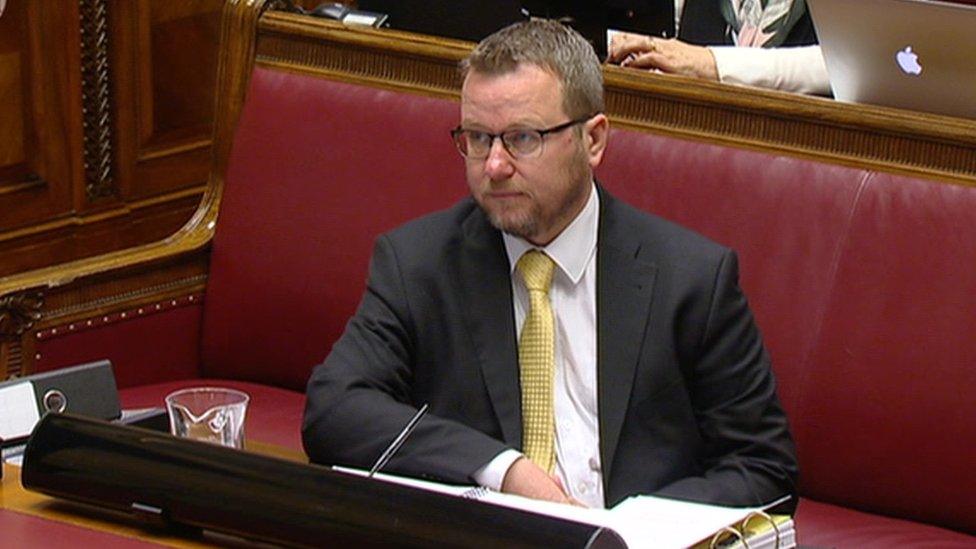
Timothy Cairns was Jonathan Bell's special adviser and claimed Timothy Johnston had instructed him to ensure cost controls were not introduced
But inquiry panellist Dame Una O'Brien said she could not accept that reading of the email.
She said on any "common sense reading" it implied "some degree of previous engagement on it".
'Skimmed the email'
Mr Johnston said he was very clear that he had not been trying to keep cost controls out of the scheme - he has consistently denied any involvement.
He said mid-August 2015 had been a critical period for power sharing, when political relations were on "life-support" after the murder of Kevin McGuigan, which was blamed on the Provisional IRA.
He said Mr Cairns may have believed that another adviser, Andrew Crawford, had been updating him on discussions between the pair around RHI and believed he had more expertise and knowledge of the issue than he actually had.
He said he had not been engaged on the matter, most likely "skimmed the email" and had not replied to it.
Inquiry chair Sir Patrick Coghlin said there were two options: either Mr Cairns had pulled the reference to the ministerial direction out of the air, or there had been, as Mr Cairns suggested in his evidence, some direction by Mr Johnston to frustrate cost controls.
Mr Johnston conceded that it was something that was very rarely encountered.
'Missed opportunity'
The DUP's chief executive also said that with hindsight, he had missed an opportunity to address how the ill-fated RHI scheme was handled.
On Thursday, Mr Johnston also told the inquiry if he had read an email sent to him in July 2015 from Andrew Crawford, which contained details of the proposed cost controls, he likely would have acted sooner to ensure they took place.
Officials had wanted to bring in tariffs in October 2015, but ultimately they were not introduced until November - which allowed a four-week period where there was a flood of applications to the scheme and severely impacted the RHI budget.
Mr Johnston has denied any knowledge of how that delay occurred, and has said he is "absolutely certain" he never instructed anyone to "delay, soften or reduce" cost controls.
He also told the inquiry he did not become aware of potential abuse of the scheme until January 2016.
Problems with the scheme did not become public knowledge until late 2016, when Mr Johnston was advising then First Minister Arlene Foster.
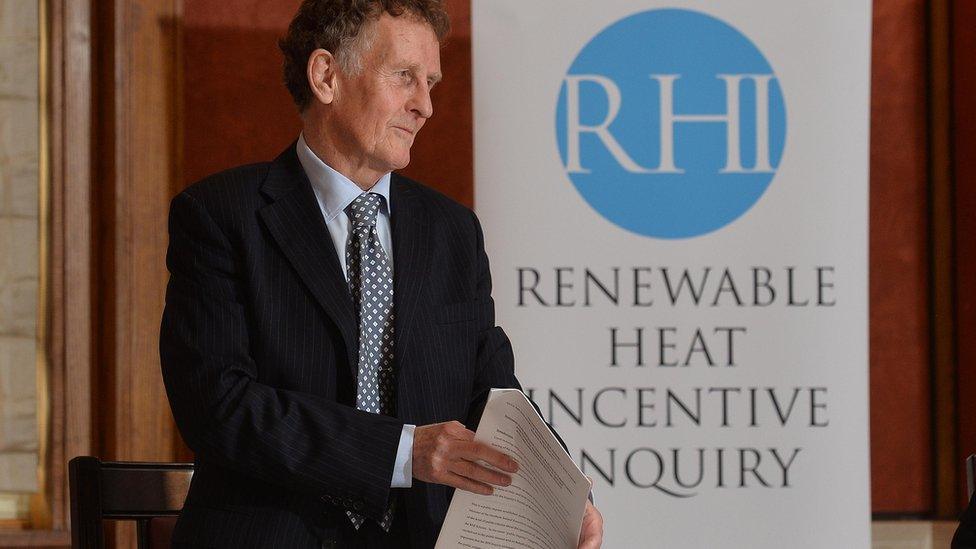
Inquiry chairman Sir Patrick Coghlin said the "inescapable inference" from Michael Doran's testimony was that Action Renewables had misled the Charity Commission
Later, Mr Johnston gave his version of events that transpired in December 2016, a day before DUP leader Arlene Foster gave an interview to the BBC claiming Mr Johnston had no role in delaying cost controls.
Timothy Cairns had told the inquiry of a conference call in December 2016, in which he claimed he set out Mr Johnston's role to Mrs Foster, Mr Johnston and another DUP adviser Richard Bullick.
He said he mentioned that Mr Johnston had told him in 2015 to liaise with Mrs Foster's then Spad, Andrew Crawford, to develop a party position on the introduction of cost controls.
"Mr Johnston clearly became uncomfortable and the conversation was quickly brought to an end," Mr Cairns said.
The next day, Arlene Foster told Stephen Nolan that Mr Johnston had no role in attempts to keep the scheme open.
'Pretty sharply'
Mr Johnston told the inquiry he recalled Mr Cairns making the claim about his involvement, but that he would "make the point back pretty sharply that no, I hadn't been involved in trying to delay cost controls".
He said he did then leave the conversation and told the inquiry he was not even sure if Mrs Foster had been in the office while the call was taking place.
He had a discussion with her in the aftermath of the conference call, he added.
He told the inquiry he assumed Mrs Foster's position - when she gave the interview to Stephen Nolan - was that she did not have proof of any DUP involvement in delaying tariffs, and that she "was not prepared to go in and make comments" based on suggestions rather than fact.
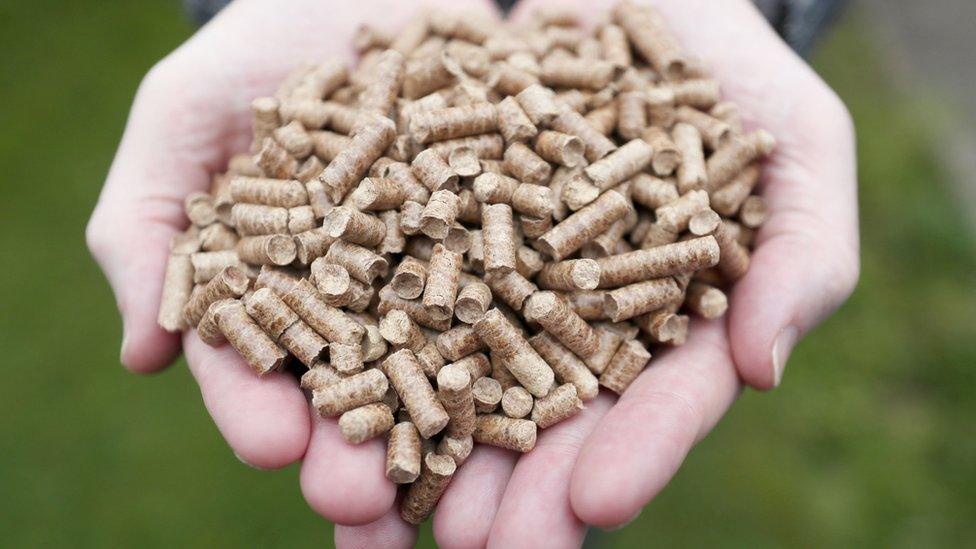
RHI claimants could effectively earn a profit by burning wood pellets in their boilers
Mr Johnston was also asked if he sought to deflect attention from himself, after he was named as being involved in the decision to delay tariffs.
The inquiry has heard evidence from another DUP adviser, Andrew Crawford - who resigned after he was named as being involved in the delay - that he felt expendable to the DUP, while the party seemingly sought to protect Mr Johnston from criticism.
Mr Johnston said it was no more his desire to see Mr Crawford accused than it was to see himself named in the media.
He said he had contacted the enterprise department's permanent secretary in December 2016, seeking details of DUP members who had family connections to RHI.
It later emerged Mr Crawford had a number of relatives who were RHI claimants.
Adviser 'time limits'?
But Mr Johnston said he did not seek that information in an attempt to "throw Mr Crawford under a bus" or to deflect attention from himself.
Rather, it was "an attempt to establish what the facts were", he told the inquiry.
Finishing his evidence, Mr Johnston was asked what lessons need to be learned from the entire debacle.
The inquiry has spent a lot of time looking at the power wielded by unelected special advisers at Stormont, and whether they did more than simply advise ministers.
Mr Johnston was asked by Dame Una if time limits should be put in place for advisers in the future, to ensure more experienced advisers do not gain too much authority.
He said he "wouldn't rule it out", adding that Northern Ireland is "a place apart" and that much needs to be done to rebuild public confidence in the political institutions.
Charity Commission
It also emerged on Thursday that the Charity Commission is "carefully considering" claims that a leading renewable heat group may have misled a commission investigation linked to the RHI scheme.
It follows Wednesday's evidence at the inquiry from Michael Doran of Action Renewables, a charity promoting energy efficiency.
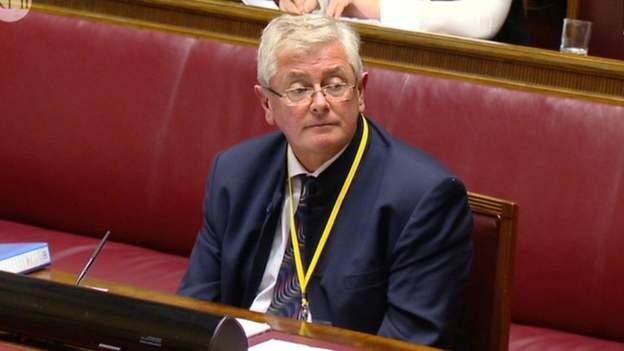
Michael Doran of Action Renewables gave evidence to the inquiry on Wednesday
It helps businesses switch from fossil fuels to green energy, and handled about a quarter of all applications to the RHI scheme.
In order to be eligible for the most lucrative subsidy, firms were better to install multiple smaller boilers instead of one large boiler, which would have been more energy efficient - but would not have provided as great a rate of return.
On Wednesday, Mr Doran told the inquiry his organisation was aware of this flaw from the outset, but did not flag it with Stormont officials, in case it led to a delay in the introduction of RHI.
Cover-up denial
In early 2017, the Charity Commission began an investigation into Mr Doran's organisation after an Irish News report pointed out that it had processed RHI applications, in spite of Mr Doran's knowledge of the absence of cost controls., external
The commission closed the file after meeting the charity's trustees, who said they did not know about the problems until December 2016.
But on Wednesday, the inquiry's chairman, Sir Patrick Coghlin, said in light of Mr Doran's admission that he knew about the flaws much earlier than he initially claimed, the "inescapable inference" was that Action Renewables was misleading the Charity Commission.
Mr Doran accepted that it seemed that way, but denied accusations of a "cover-up".
The Charity Commission has said it is now considering Mr Doran's evidence at the inquiry.
Allow X content?
This article contains content provided by X. We ask for your permission before anything is loaded, as they may be using cookies and other technologies. You may want to read X’s cookie policy, external and privacy policy, external before accepting. To view this content choose ‘accept and continue’.
It said it is an offence for charities to "knowingly or recklessly supply" false or misleading information.
The former chair of Stormont's enterprise committee, SDLP assembly member Patsy McGlone, also appeared at the inquiry on Thursday to give more evidence.
'Meetings at Moy Park'
He said members were kept in the dark by officials about huge problems with the scheme, and they might have been better informed had they held their meetings "at Moy Park".
Mr McGlone was in charge of the enterprise committee, which was tasked with scrutinising the enterprise department which held responsibility for the RHI scheme.
He said civil servants were never forthcoming about the problems in the scheme, even as they were drafting emergency changes to it.
"It appears that others outside the assembly were much better informed than elected officials were," he said.
"Perhaps we should have had our meetings at Moy Park."
That refers to evidence already heard by the inquiry that the poultry giant - whose suppliers made up the majority of RHI claimants - was getting regular updates from departmental officials about impending changes.
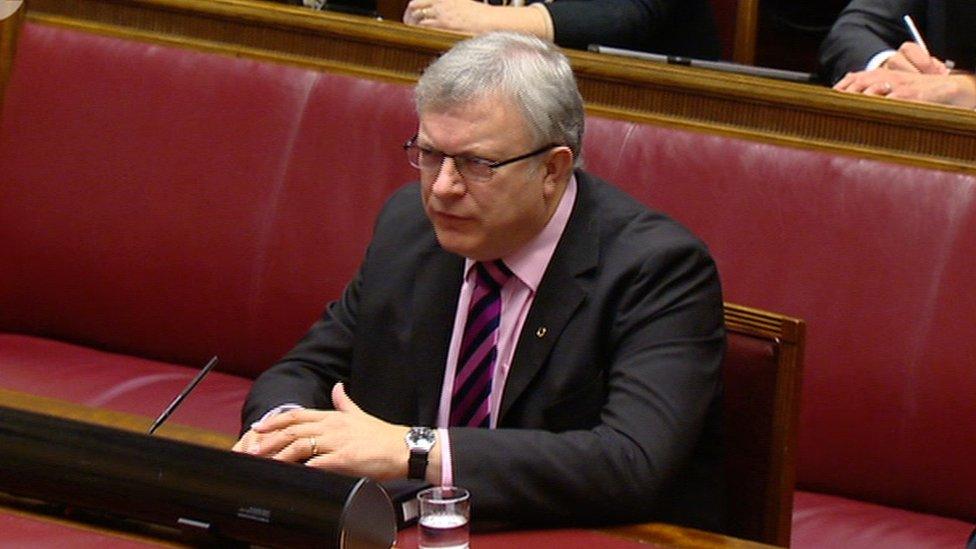
Patsy McGlone chaired Stormont's enterprise scrutiny committee, which did not spot that the enterprise department had failed to spot critical flaws in the RHI scheme
It was also being kept informed by former DUP special adviser, Andrew Crawford.
Mr McGlone told the inquiry that when he asked about the need for major changes to the scheme in November 2015, he was told there were a few "procedural, financial and legal issues to tidy up".
At that stage, the department was frantically trying to bring the scheme's major overspend under control.
Mr McGlone said the sense his committee got from everything it had been told was that there was "nothing to worry about".
Later, Mr McGlone conceded that with hindsight, the committee could have done "much, much more" in holding the enterprise department to account.
Inquiry counsel David Scoffield asked if he felt the committee had provided a "sufficiently effective oversight of the department".
Mr McGlone said on reflection it could have done more, but said his view was "heavily qualified and tainted with a degree of cynicism".
'Paddling in disturbance'
He said that was because even when departmental officials gave the committee details of plans to introduce much-needed cost controls in autumn 2015, there was "no sense of urgency" communicated to the committee.
Mr McGlone said the picture being presented by the department was that "everything was calm above water, and everything was paddling in disturbance beneath the water".
Funding issues should have been brought to the committee's attention much sooner, he added.
"Even if we had asked for more information, would that have been presented to us in a fulsome, proper and professional way?" he said.
"When I asked about the urgency of the situation in 2015, it was a fairly blasé response I got."
He said the enterprise committee only had elected representatives and four staff members, in comparison to "400 at the department", and said it appeared "they still can't do the job properly".
Extra resources would be of benefit to the committee to provide further scrutiny, he added.
On Friday, Dermot Nolan - the chief executive of the Office of Gas and Electricity Markets (Ofgem) - which had oversight for the RHI scheme, will give evidence to the inquiry.
- Published25 September 2018
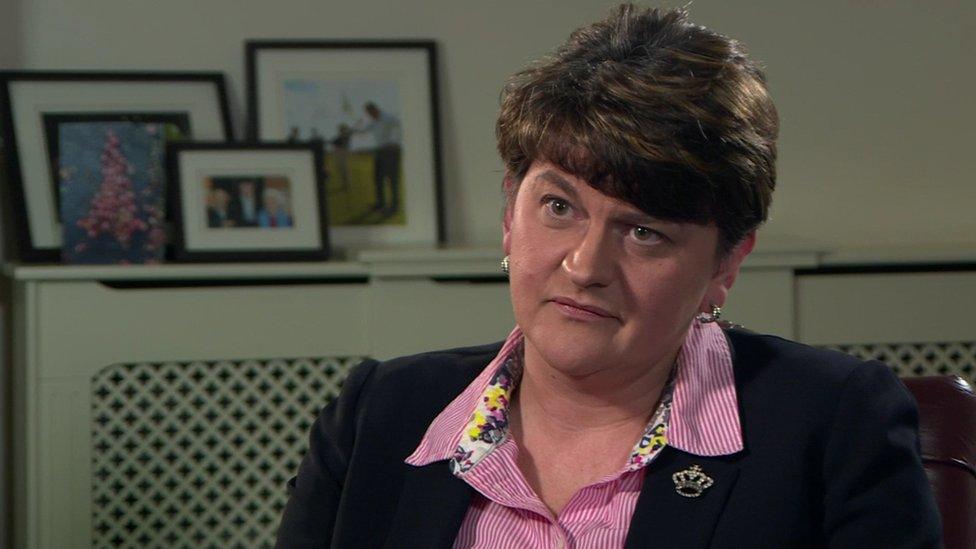
- Published21 September 2018
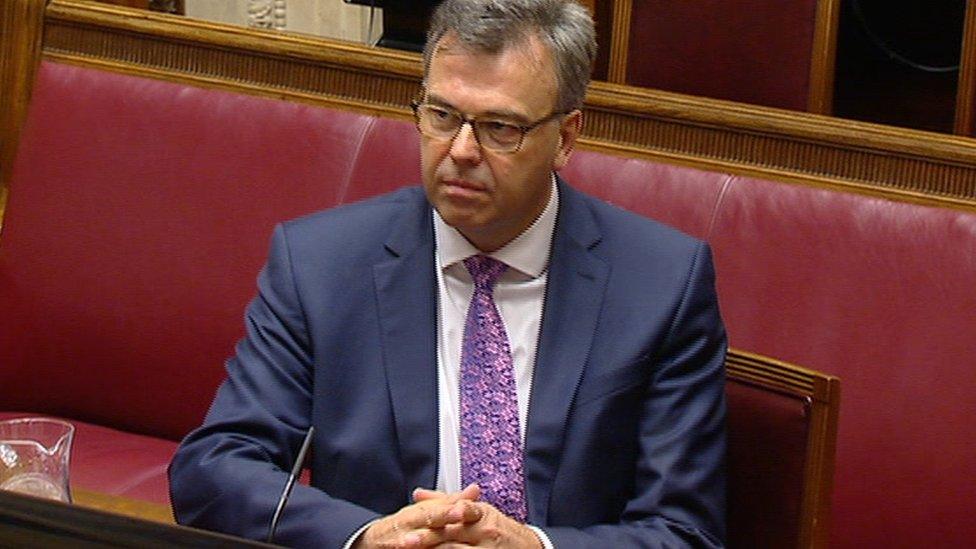
- Published20 September 2018
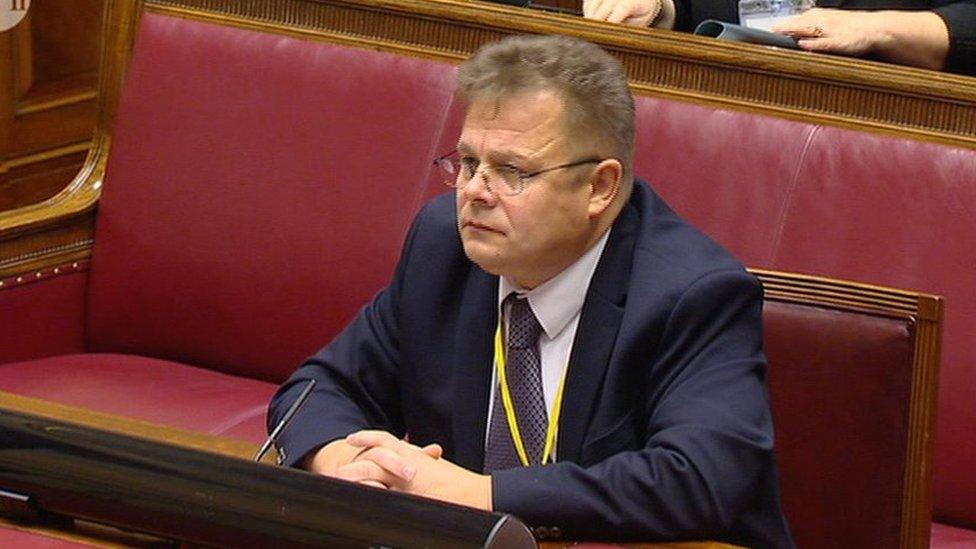
- Published14 September 2018
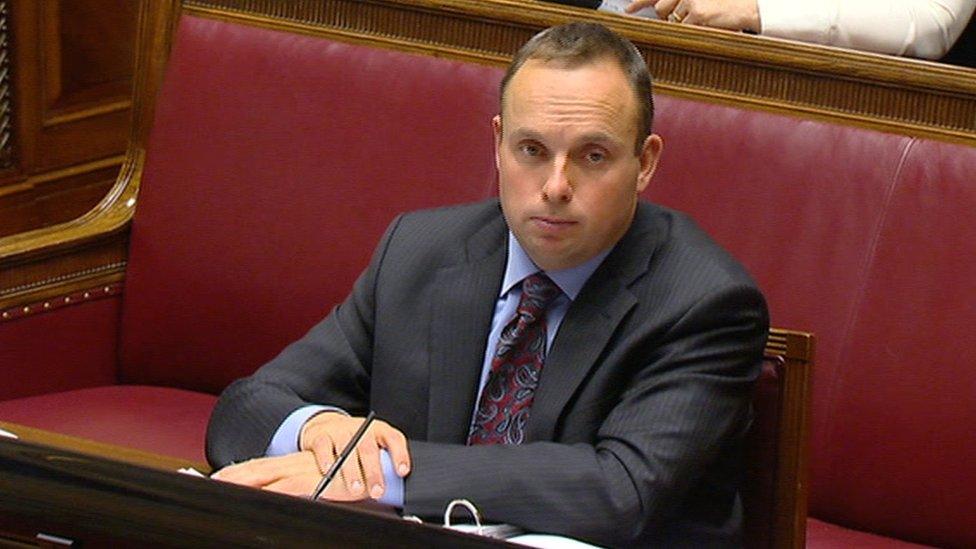
- Published13 September 2018
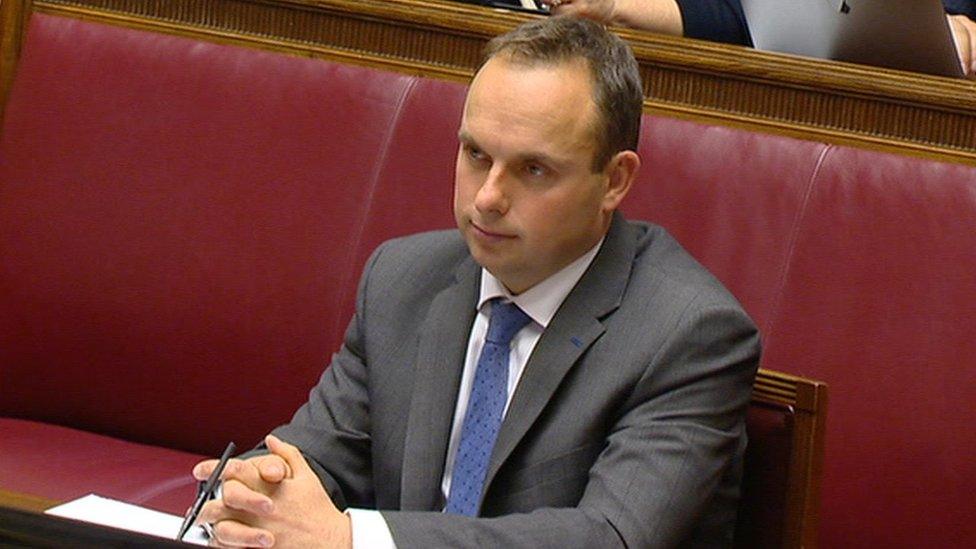
- Published12 September 2018
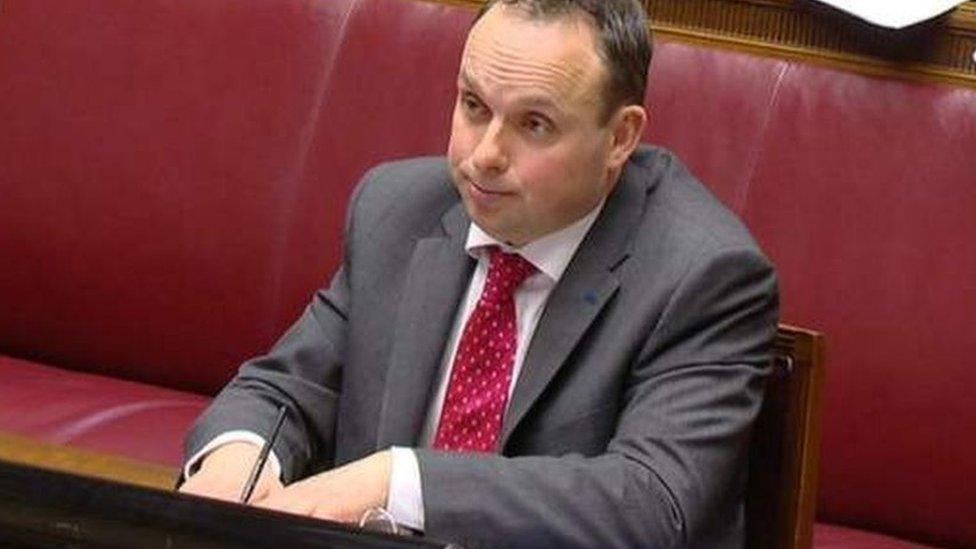
- Published11 April 2018
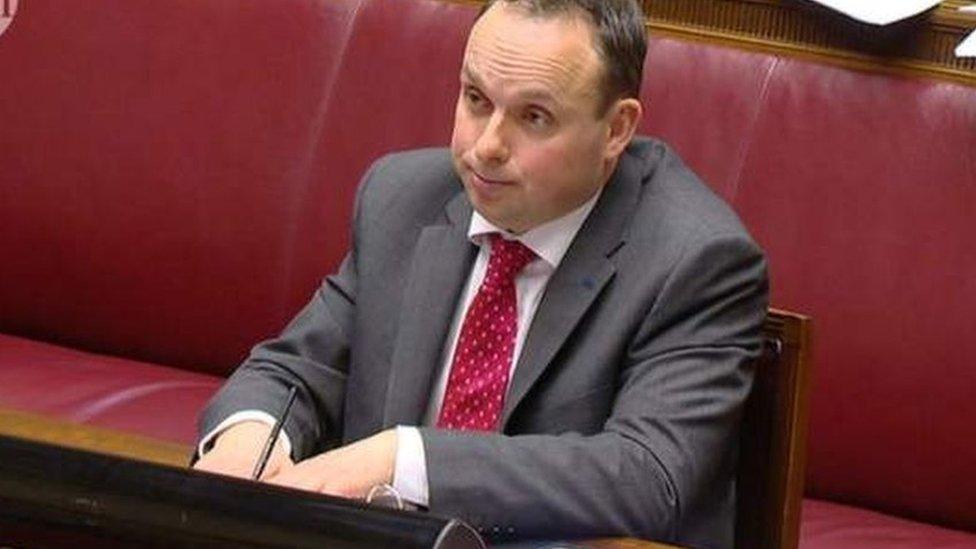
- Published11 September 2018
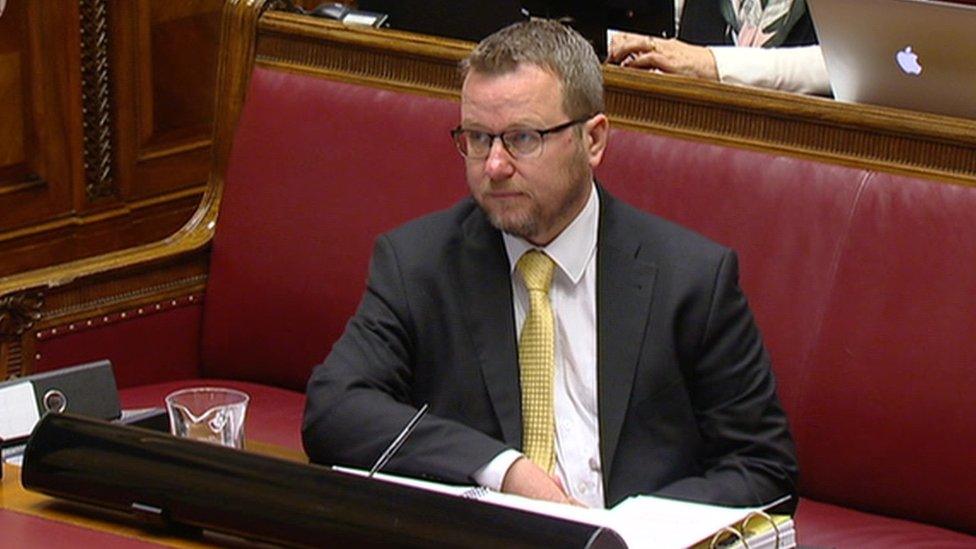
- Published11 September 2018
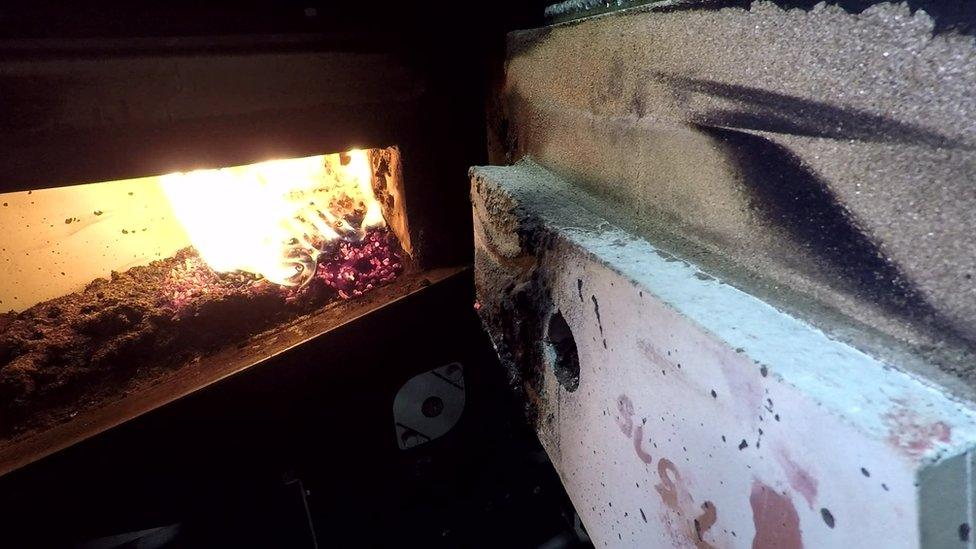
- Published7 September 2018
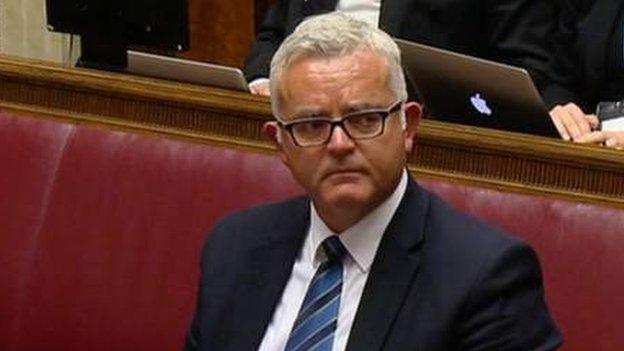
- Published7 September 2018
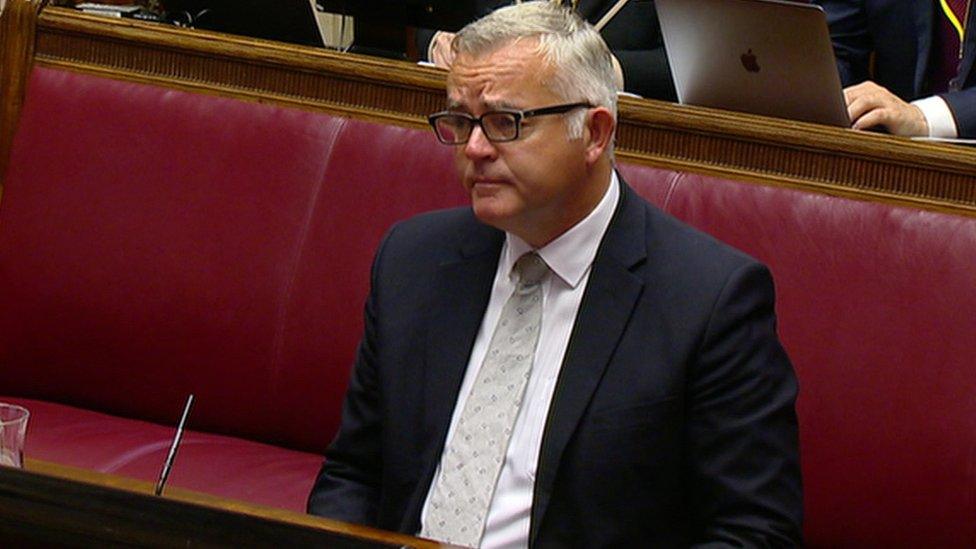
- Published5 September 2018
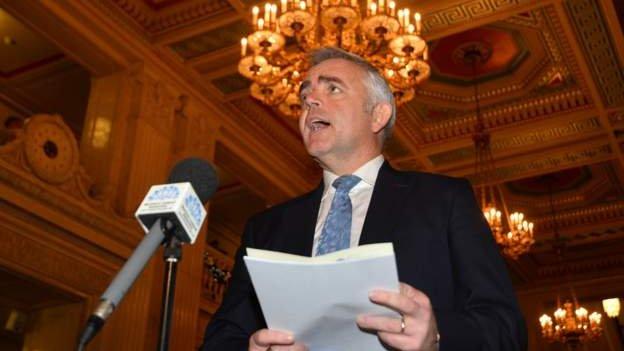
- Published5 September 2018
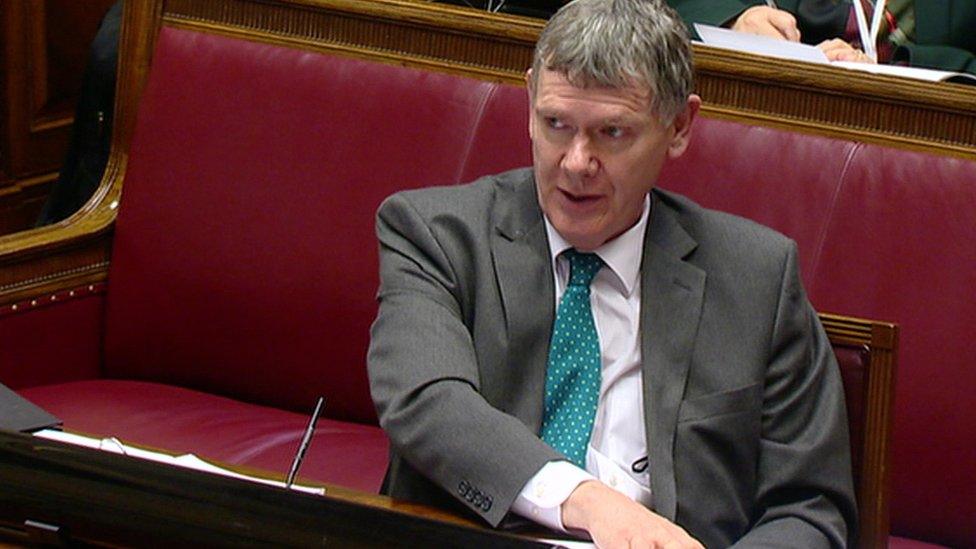
- Published5 September 2018
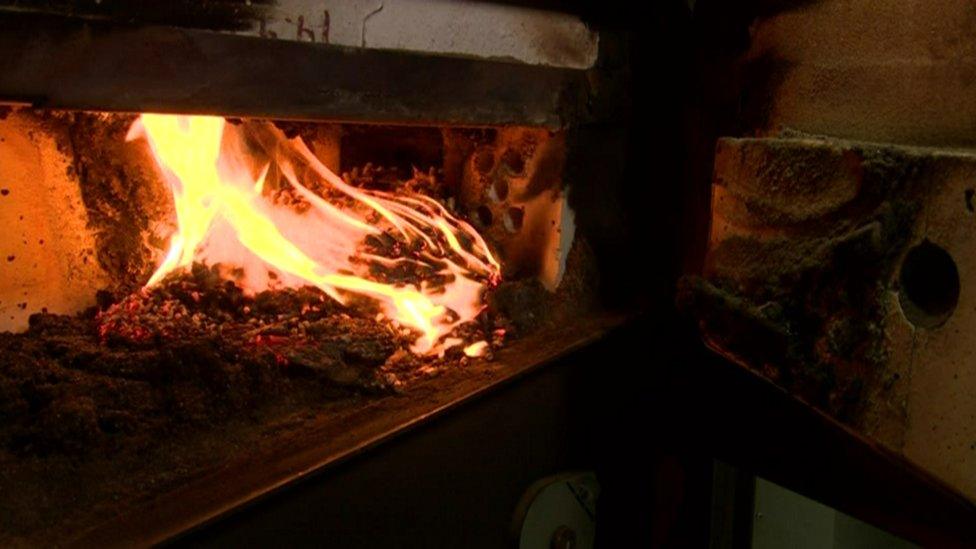
- Published13 March 2020
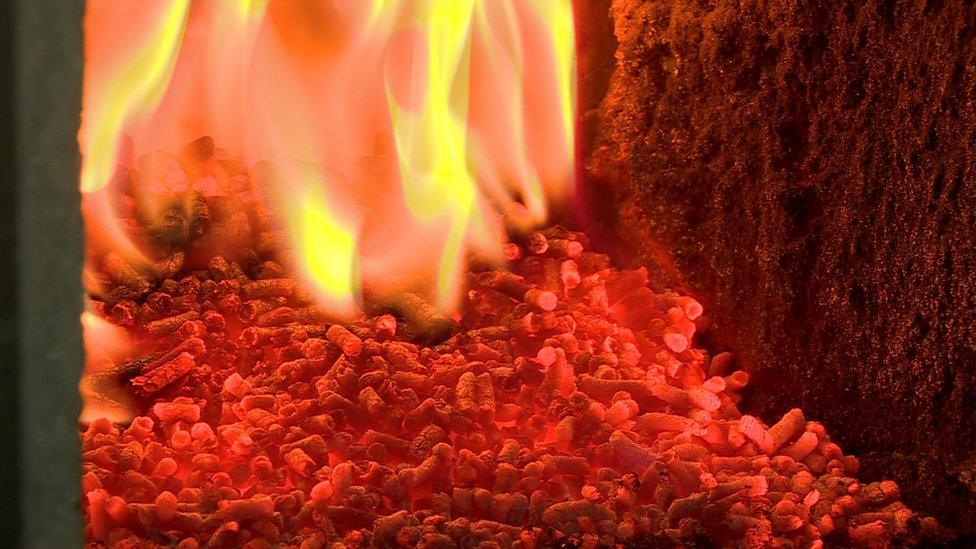
- Published4 September 2018
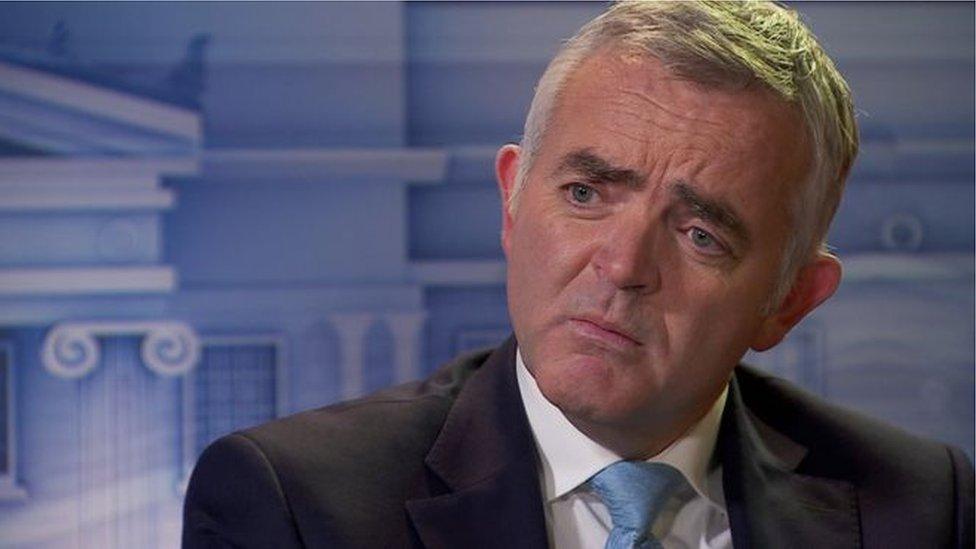
- Published17 April 2018
